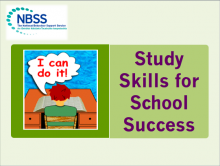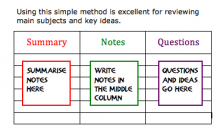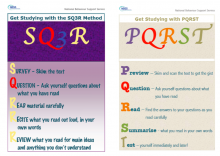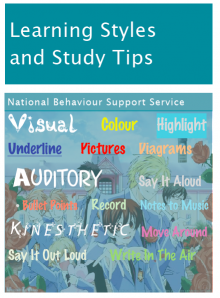At Level 2, the NBSS works with schools on targeted interventions that can support the development of specific learning and study skills with small groups of students or class groups. The following snapshot describes how one school focused on developing study skills with their 3rd year students.
- The Positive Behaviour Liaison teacher, with school personnel identified study skills as a possible area that 3rd year students needed to be supported in developing in order to achieve and succeed at school.
- A study skills questionnaire was designed, in consultation with the NBSS Research and Development Officer and carried out with all 3rd year students. The findings from the questionnaire confirmed the need for this intervention.
- Study and Learning Skills workshops were then organised and run for all 3rd year students by the Positive Behaviour Liaison teacher. The NBSS provided powerpoints and student materials for each workshop session that covered topics such as learning about learning, being organised, time management, memorisation strategies, handling homework and test taking strategies, as well as other study skill strategy resources.
- On the Positive Behaviour Liaison staffroom notice board all staff were informed of the topics being covered in each session and the powerpoint study and learning workshop presentations were made available to all staff via the school server.
- Each student was also provided with an A4 study folder with subject dividers and a plastic folder containing highlighters, post-its and a weekly study planner.
- During the workshops students actively learned how to organise their learning using specific strategies, for example graphic organisers and thinking maps to aid retention and recall. Students were supplied with templates of various graphic organisers for later use.
- At the end of the study and learning skills intervention, the study skills questionnaire was re-administered by the Positive Behaviour Liaison teacher and a marked improvement was evident with all students stating that they now knew how to study.
The close connections between academic achievement and behaviour can mean that addressing a deficit in one area may prevent a problem from occurring in the other.
Examples of other school interventions focused on comprehension, learning, literacy and study skills development can be seen here.




